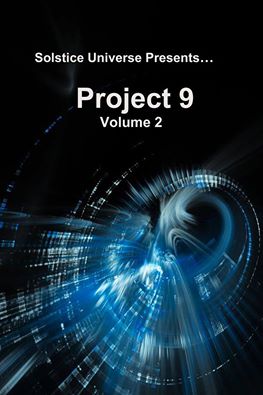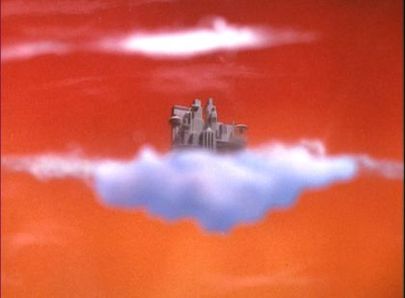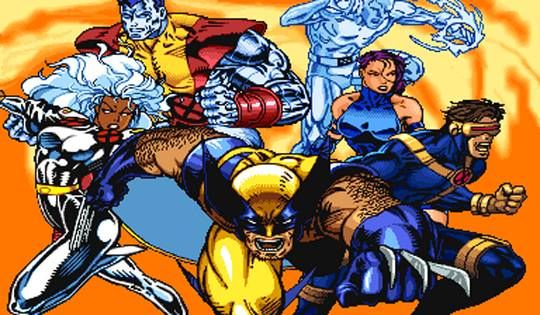The Definition of Nerd : an unstylish, unattractive, or socially inept person ; especially : one slavishly devoted to intellectual or academic pursuits
www.merriam-webster.com/
Hello, my name is Ray, and I am a nerd. I fit the above definition in every way. I am quite proud of being a nerd. It means that I read books that don’t have any pictures in them, I can find tiny little nations like Russia on a map, and that I am blissfully unaware of the transient and increasingly expensive pop-culture fads.
I was the kid who could be found under the dining room table with a good sci-fi novel or a stack of comic books when other kids were playing all the various games that can be played with a ball. (Has it ever occurred to you that all such games are essentially slightly more complicated versions of “fetch” which even the most mentally deficient dog can be taught to play in a fairly short time?) I was the kid who woke up my entire household with a gleeful shriek upon first seeing the commercial for Star Wars back in 1977. I was the kid got up at five in the morning to watch Battle of the Planets and Star Blazers before going to school. I was, and am, a nerd’s nerd.
I never grew out of my nerdiness. I graduated high school, and I was still a nerd. I became a police officer, and I was still a nerd. Now, I’m a forty-seven-year-old fledgling author, and I’m still a nerd. I still stay up to three in the morning to watch an old episode of the original (by that I mean the REAL) Star Trek. If given the chance, I will happily spend hours debating the minutest details of the works of J.R.R. Tolkien, or the aesthetic appeal of the design of a Federation starship. As I have already admitted, I’m a nerd. But you, no matter who you are, are a nerd too.
You may not fit into the narrow definition above, but if you think about it hard enough and you’re honest with yourself, you’ll find something you’re a nerd about. I’m focusing here the part of the definition about “one slavishly devoted to intellectual or academic pursuits.” All you have to do is replace the words intellectual and academic with something like athletic or entertainment and you find your inner nerd.
If you can name and list the career statistics of every player on your favorite football team, is that really different from knowing the names of all the original twelve Constitution class starship from Star Trek? If you have a deep emotional attachment to a particular softball bat because you are certain it’s your lucky bat, is that so different from a Dungeons and Dragons player who wrecks his entire apartment looking for a misplaced twenty-sided die that has delivered him from many and varied horrible monsters in two times a hundred imaginary adventures? Is watching a Packers’ game in the midst of sub-zero temperatures while not wearing a shirt or coat and having your body painted green and yellow less insane than a person who dresses as a Klingon warrior at a Star Trek convention? Answer those questions for yourself, but be honest.
Nerds are an anomaly only because the things they are passionate about tend to be out of line with more commonly engaged in activities or hobbies. They do tend to be more intellectually gifted than the average person and, because if this, the things they take an interest in tend to be complex and intricate. Most nerds aren’t snappy dressers because, as long as clothing performs its required functions, (keeping one warm and preserving public decency) it seems a waste of mental energy to think too much about color coordination, or rather or not a given garment is in style at the moment. A nerd, if worthy of the designation, has little or no knowledge of pop-culture unless it intersects with his perception of the universe like, for example, when The Lord of the Rings films were embraced by the general public and became, at least for a short time, part of pop-culture.
But is this gap of understanding between nerds and ‘regular people’ really so different from a married couple in which the wife spends every afternoon enthralled by the Byzantine and unlikely plots of her favorite soap operas, and the husband spends his weekends watching one sporting event after another, listening to endless commentaries about those events, and then arguing about the outcomes with other equally dedicated sports fans? Dedication to something you enjoy is a natural thing. Why is it that such dedication is generally acceptable for a Steelers fan waving his ‘terrible towel,’ but not for a Star Wars fan sporting a “May the Force be with you” T-shirt? The answer is simply that more people have the harmless obsession for sports that have the equally harmless obsession for science fiction, fantasy, or the depths of cosmology. It’s just a matter of scale. More people understand things like soap operas and sports, so those pastimes have no stigma attached to them.
Most generally, a nerd is thinking about things like what might happen if the universe stopped expanding, or the philosophical ramifications Steven Hawking’s information paradox, while at the same time planning new and inventive imaginary traps for the players in his next Dungeons and Dragons game session. They delve deeply into rich fantasy worlds like the Star Wars epics or The Lord of the Rings because the mundane day-to-day existence of modern life is, quite simply, boring. In fantasy and sci-fi realms (or in academic areas such as physics or philosophy) they find mental challenges that, simply put , keep them interested in living.
Nerds ask questions like: why does the Enterprise need a navigational deflector when Klingon ships don’t? Would a clone have a soul? If reincarnation were real, should the current incarnation be responsible for the debts left by his last incarnation? Some would say such questions are frivolous, or even silly, but in truth, such questions have immense value. Nerds see beyond the here and now. They think about what could be and, perhaps even more importantly, what should be.

I ask those who read this essay to look at themselves and see if they don’t have a nerd in them that they suppress in order to conform to the social pigeonhole called normalcy. Ask yourself if you didn’t secretly admire the poorly dressed kid who was the only one in the school that knew how to run the old reel-to-reel movie projector. Try to remember that you too once had a stash of comic books that you hid from your mother who thought that they would rot your brain. Maybe you can admit that you actually thought playing Dungeons and Dragons might be fun, but you never asked the nerds if you could play for fear of being branded a nerd yourself. If you look hard enough, you’ll find that nerd watching The Thing with Two Heads in some seldom used synapse of your brain. If you do, let him out and get to know him. You’ll probably have fun.












